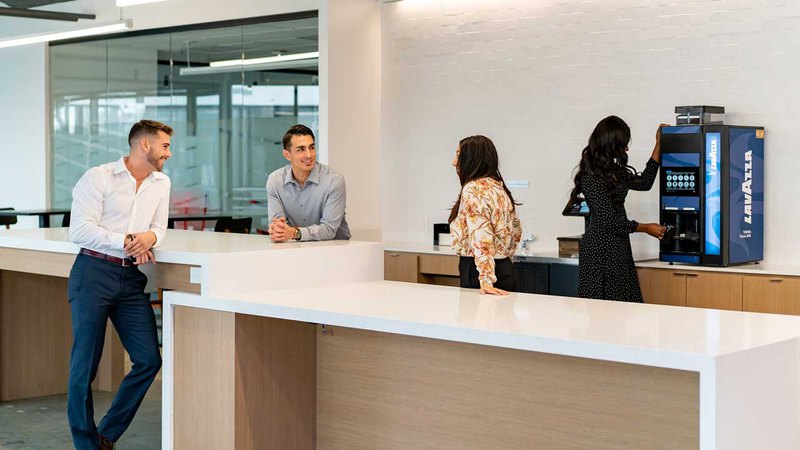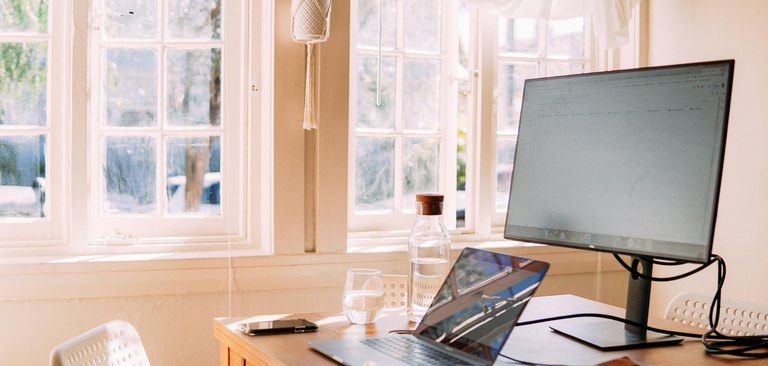
All Pros and Cons of Working from Home and in an Office
The world is changing, and so are attitudes toward working settings. Many employees are trying to move to remote work from their offices. Is working from home that good as it sounds?
Professionals now operate in a wider range of settings due to changes in workplace technology and a rise in the variety of career paths available. Some professions may choose working from home vs working in an office, others require a certain coworking space.Your productivity and job happiness might be increased if you choose the workplace that best matches your abilities and responsibilities.
In this post, we examine the pros and cons of working from home vs. working in an office and emphasize the most important distinctions.
What Are the Most Common Remote Office Jobs?
Having a work-from-home (WFH) or remote role means that the employee may conduct their work activities at home or at another place remotely. Employees may utilize a variety of technological gadgets, such as a work phone, computer, and internet modem to set up a home office for remote work in their daily job activities. The following are some of the most popular remote office jobs:
- Customer service associate
- Copywriter
- Marketing specialist
- Web designer
- Social media manager
- Virtual assistant
- Consultant.

What Exactly Is an Office Job?
On-site positions, sometimes known as "office jobs," are opposite to remote office jobs. They require employees to work in a corporate office environment. These positions may need the use of specialist equipment, access to confidential data, or the capacity to interact with clients and coworkers face-to-face. Here are a few examples of typical office tasks:
- Bank teller
- Receptionist
- Building manager
- Health care practitioner
Working Remotely vs in an Office: All Pros And Cons
Work-from-home positions differ from office positions in several ways. Let’s look into all pros & cons of working remotely vs working in an office.
Commute
Employees with remote office jobs are able to avoid commuting from their homes to the workplace. This might save them several hours a week, depending on where they reside. When it comes to transportation costs, they often save money. Most office workers include commuting time on their daily agenda. They might be listening to podcasts or doing business calls on the way, so commuting to work has its own pros and cons.
Work Environment
Professionals who work from home may typically customize their office to maximize efficiency. Employees who work from home vs office have more freedom when it comes to personalizing their workspace than those who work in traditional offices. A remote worker may not have the room or equipment to set up their own workplace, which reduces productivity and increases distractions throughout the day, depending on the configuration.
Finding strategies to divide the home and work environments is essential. In order to maintain this mental separation, many remote employees will begin moving to coworking spaces from time to time to get into the right rhythm.
Schedule
When you have one of remote office jobs, you may set up a schedule that works best for your other commitments. Working at home vs office positions allow parents to pick up their children from school and make up for missed time at the end of the day. However, some professionals may prefer the regularity of an office job over the flexibility of working from home.
Focus
Working in an office with fewer interruptions is more conducive to concentration for many professions. The productivity of office workers is often enhanced by corporate offices because of the increased seclusion and decreased background noise they provide. Professional's productivity may suffer if they are distracted by pets, household chores, or even family members and friends. To minimize distractions, a remote worker may utilize a range of methods, such as using a home office checklist, setting a timer, and posting a notice on the door of their office to help them stay focused and productive.
Interaction With Colleagues
It may be more difficult for professionals who work at home vs office workers to connect with one another. There are several places in the office where coworkers may greet one another and talk about their personal lives, such as corridors, cubicle floors, and break rooms. In addition, office workers may participate in company festivities, such as birthday parties, which can strengthen their relationships with their coworkers. It's possible that virtual events, such as trivia contests and online video conferencing, may be used by firms to link remote office jobs workers, but this is not as effective as face to face interaction.

Physical Health
Maintaining physical fitness may be easier for people working from home vs those working in an office. They may sleep in, go for a stroll, or finish a fitness program with the extra time they save by not having to commute in the mornings and evenings. People who work at home have the benefit of being able to prepare healthy meals for their own use during their lunch break.
It is possible for office workers to improve their well-being by bringing their lunch from home and taking regular pauses to stretch or go outside. Some office buildings even have their own fitness centers or partner with nearby gyms.
Balance
To achieve a healthy work-life balance during setting up a home office for remote work, you must be mindful of how much time and effort you devote to all aspects of your life. When we think about the advantages and disadvantages of working from home, flexibility is one of the first things that comes to mind. But, with more flexibility and freedom that working from home might provide, the line between work and personal time may become more blurred. At the end of the day, professionals who work in an office can leave their work materials at the workplace so that they can spend their spare time focusing on hobbies, family, and friends.
So, What to Choose?
At the end of the day, each work style has its own set of advantages and disadvantages. It's vital to compare each to your personal life and evaluate which choice, working from home vs working in an office, best fits your profession. A hybrid work style may be another option to consider. Coworking spaces such as CityCentral are in favor of this style as they provide flexible, short term office solutions for professionals.


